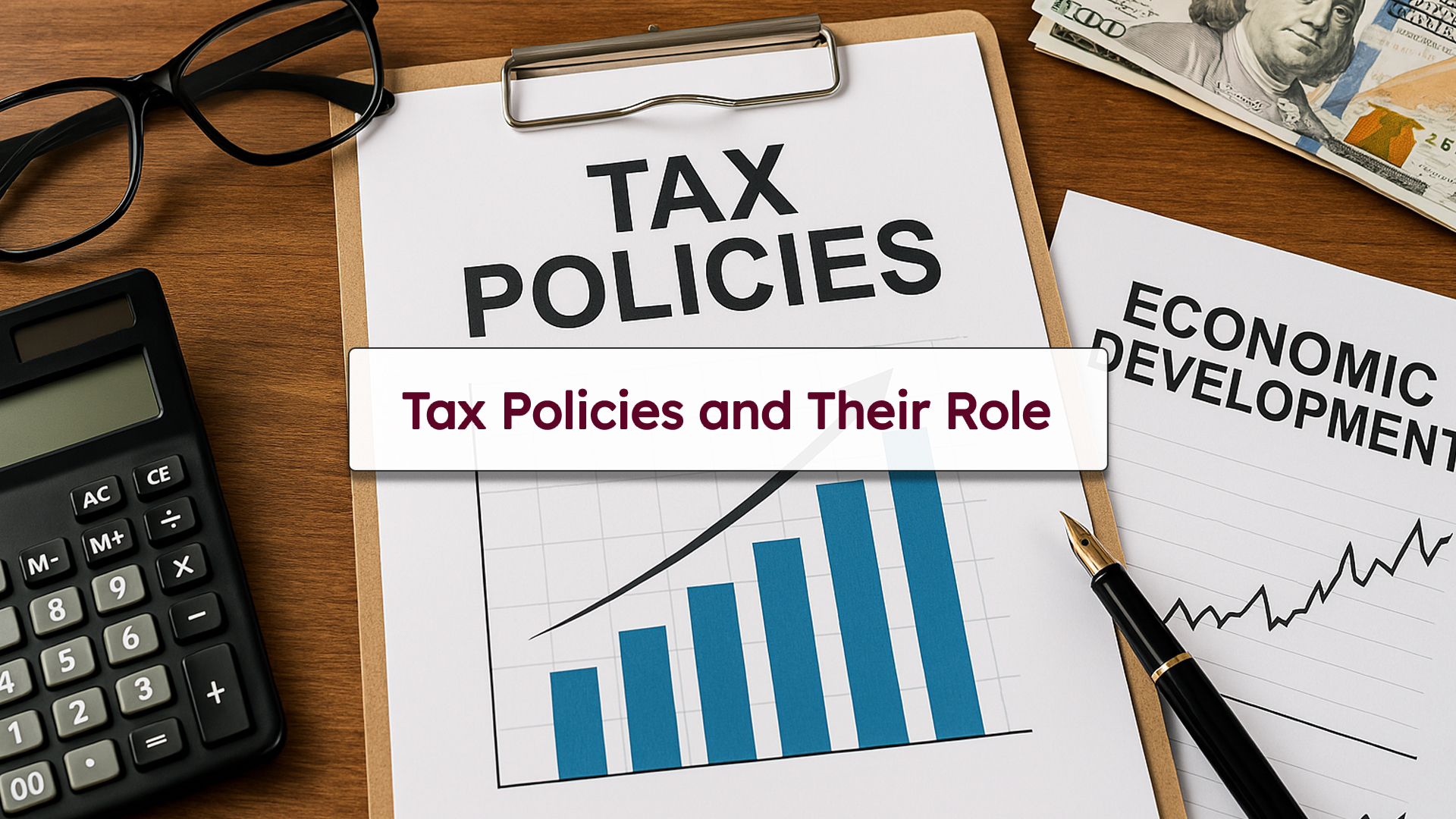Tax policies play a fundamental role in shaping a country’s economic development. Governments use taxation as a tool to generate revenue, regulate economic activity, and influence the distribution of wealth. Well-designed tax policies can foster growth, encourage investments, and improve social welfare, while poorly structured tax systems can hinder economic progress and exacerbate inequalities.
The Purpose of Taxation in Economic Development
Taxes serve multiple purposes in an economy, including:
- Revenue Generation: The primary function of taxation is to provide governments with the necessary funds to finance public goods and services such as infrastructure, healthcare, and education.
- Economic Regulation: Taxation helps regulate market behavior by incentivizing or discouraging certain economic activities. For example, higher taxes on tobacco and alcohol aim to reduce consumption.
- Wealth Redistribution: Progressive tax systems ensure that wealthier individuals contribute a higher percentage of their income, which helps reduce income inequality and promote social stability.
- Encouraging Investments and Growth: Tax incentives and reductions can attract foreign and domestic investments, spurring job creation and innovation.
Types of Tax Policies and Their Economic Impacts
1. Progressive Taxation
Progressive tax systems impose higher tax rates on higher income earners. This approach helps bridge income disparities and fund social welfare programs. However, excessive tax rates may discourage high earners and businesses from investing or expanding operations.
2. Corporate Taxation
Corporate taxes influence business investment decisions. Lower corporate tax rates can encourage entrepreneurship and attract multinational companies. However, extremely low corporate taxes may reduce government revenue needed for public services.
3. Value-Added Tax (VAT) and Sales Taxes
These consumption-based taxes generate substantial revenue for governments. While VAT is a stable source of income, it can disproportionately affect lower-income individuals who spend a larger share of their earnings on essential goods.
4. Tax Incentives and Breaks
Governments often use tax incentives, such as tax credits or deductions, to encourage activities like research and development, renewable energy adoption, and infrastructure development. While these incentives promote growth, excessive tax breaks can lead to budget deficits.
Challenges and Considerations in Tax Policy Design
Creating an effective tax policy involves balancing economic growth, equity, and efficiency. Some challenges include:
- Tax Evasion and Avoidance: Loopholes in tax laws allow individuals and corporations to evade taxes, reducing government revenue.
- Administrative Efficiency: Complex tax codes can make compliance difficult for businesses and individuals, leading to inefficiencies and corruption.
- International Competitiveness: In a globalized economy, countries must ensure that tax policies remain attractive to investors without compromising revenue collection.
Conclusion
Tax policies are essential tools for fostering economic growth and ensuring equitable wealth distribution. Governments must carefully design tax systems that strike a balance between generating revenue, promoting investment, and ensuring fairness. By implementing transparent and efficient tax policies, countries can create an environment conducive to sustainable economic development.


